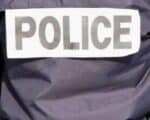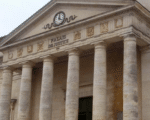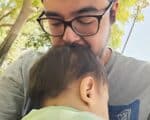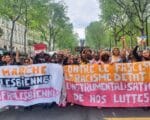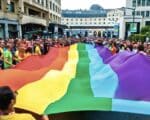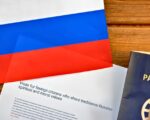>> C of E bishops urged to unequivocally welcome gay Christians
[spacer]
En marge de la rencontre du Collège des évêques anglicans ce 12 septembre et après l’émoi suscité par les déclarations il y a quelques jours du Dr Nicholas Chamberlain, premier ecclésiastique de l’Église d’Angleterre à révéler publiquement qu’il est « homosexuel et en couple », 131 évêques, archidiacres, doyens et responsables laïcs… soit le tiers de la hiérarchie, ont signé une lettre dans laquelle ils demandent un accueil « sans équivoque » des chrétiens LGBT.
« Une reconnaissance essentielle pour la santé et l’avenir de notre Église et de sa mission dans le monde », insistent-ils dans le plaidoyer, exhortant la communion à « plus d’honnêteté et de transparence » : « Nous devons veiller à ce que l’amour du Christ rédempteur puisse être partagé par toutes et tous. »
Un texte soutenu par une dizaine d’autres membres synodaux, même s’ils ne sont pas signataires, n’ayant pas pu prendre part au processus de discussion mené « en interne » ces deux dernières années sur « la sexualité ».
Opposée au mariage des couples de même sexe, la communion anglicane autorise cependant les prêtres homosexuels, et depuis 2013 ses évêques, à contracter des unions civiles, à condition d’être « chastes ». Les relations sexuelles ne sont en effet autorisées que dans le cadre du « mariage », selon les orientations sur le clergé révisées en 2015, comme le rappelle le site La-Croix. Le Dr Chamberlain avait d’ailleurs précisé dans son interview du 2 septembre qu’il entretenait « une relation sérieuse » mais vivait dans la « continence ».
Des révélations qui auront d’autant plus secoué les fidèles outre-manche que le Dr Justin Welby, primat et archevêque de Canterbury, a reconnu être au courant de cet « engagement de long terme » lors de la nomination de l’évêque en novembre, décidée « sur la base de ses qualités » et non pas son orientation sexuelle.
Cette question agite toujours profondément l’Église d’Angleterre, qui doit revenir ce lundi sur le débat. La réunion des évêques ne devrait toutefois pas donner lieu dans l’immédiat à une quelconque décision ou un changement de doctrine, a souligné un porte-parole du Collège, « mais il y a une véritable prise de conscience », assure t-il, en faveur d’une ouverture et de mesures plus inclusives. « Les discussions qui se sont closes en juillet ont ému et remis beaucoup de choses en question. »
Nicholas Holtam, l’évêque de Salisbury, a salué une contribution encourageante, et Paul Bayes, en charge du diocèse de Liverpool, s’est félicité de la diversité des signataires, qui malgré des différences traditionnelles, témoigne de la richesse de la communauté anglicane.
Terrence Katchadourian
stophomophobie.org
[spacer]
>> Almost one in three clergy and lay members of the Church of England’s ruling body have signed a letter to bishops urging them to unequivocally welcome lesbian and gay Christians into the church.
Bishops are meeting on Monday to discuss what the church should do following two years of internal debate about sexuality, an issue that has caused deep divisions and threats of splits.
The College of Bishops’ meeting comes days after Nicholas Chamberlain became the first bishop to publicly declare he was gay and in a relationship. Meanwhile, an increasing number of clergy are marrying same-sex partners in defiance of church rules.
Conservatives within the C of E fear a de facto change of attitude by the church to people in same-sex relationships, in what they see as an unacceptable dilution of traditional teaching.
Last month, 72 conservatives signed a letter to bishops warning against any proposals that could leave the church « adrift from her apostolic inheritance » and lead to an « unwanted fracture » within the C of E and global Anglican church.
This week’s pro-LGBTI open letter, which gathered 131 signatures, is cautiously worded but urges bishops to « help lead us forward » with a « sense of urgency and sensitivity ».
It calls on the College of Bishops to be « unequivocal in its acknowledgement that all, including those who identify as LGBTI, are essential to the health and future of our church and mission to the wider world ».
The signatories are among 430 clergy and lay members of the C of E synod (there are also 52 bishops represented on the ruling body). The letter’s supporters come from 38 out 42 dioceses, include three deans and eight archdeacons and – according to the organisers – represent all traditions within the church.
Another seven synod members said they supported the letter but did not add their names because they had not taken part in the closed-door discussions on sexuality at the July meeting.
Jayne Ozanne, a lay synod member from Oxford who helped organise the letter, said the response had been overwhelming. « It definitely seems that the tide is now finally turning. From conversations I have had it would appear that many synod members were deeply challenged and moved by the [internal] discussions in July, and it seems that there is a growing consensus for the church to take active steps towards ensuring it is welcoming and inclusive of all. »
David Ison, the dean of St Paul’s, who was also involved in gathering signatures for the letter, said the status quo was not an option. « I believe that there’s a growing consciousness across the church that our response to lay and ordained LGBTI Christians cannot stay as it is. We need far greater honesty and transparency with one another, and to ensure that all LGBTI people are welcomed and affirmed by a church called to share the redeeming love of Christ with all. »
Responding to the letter, Nicholas Holtam, the bishop of Salisbury, said: « It is not surprising that the bishops are receiving letters from all sides in advance of our meeting next week. We are in a long process, seeking the way forward together. This letter is encouraging of that process, both in content and the number of signatories. It is a very welcome and supportive contribution. »
Paul Bayes, the bishop of Liverpool, said he was glad to receive the letter. « It was especially good to recognise the signatures of synod colleagues from many of the different traditions that make up our richly diverse church, » he said.
In June, Bayes called for far-reaching change in the church’s attitudes to lesbians and gay people, saying his views had been « profoundly changed » by his encounters with same-sex couples, including within his own family.
A C of E spokesperson said no final decisions were expected to be made by bishops next week. Through the process of internal discussions – known as shared conversations – which involved more than 1,300 people, « deep convictions have been shared and profound differences better understood. That process will inform discussions at the meeting of the college of bishops and further meetings in the months ahead ».




